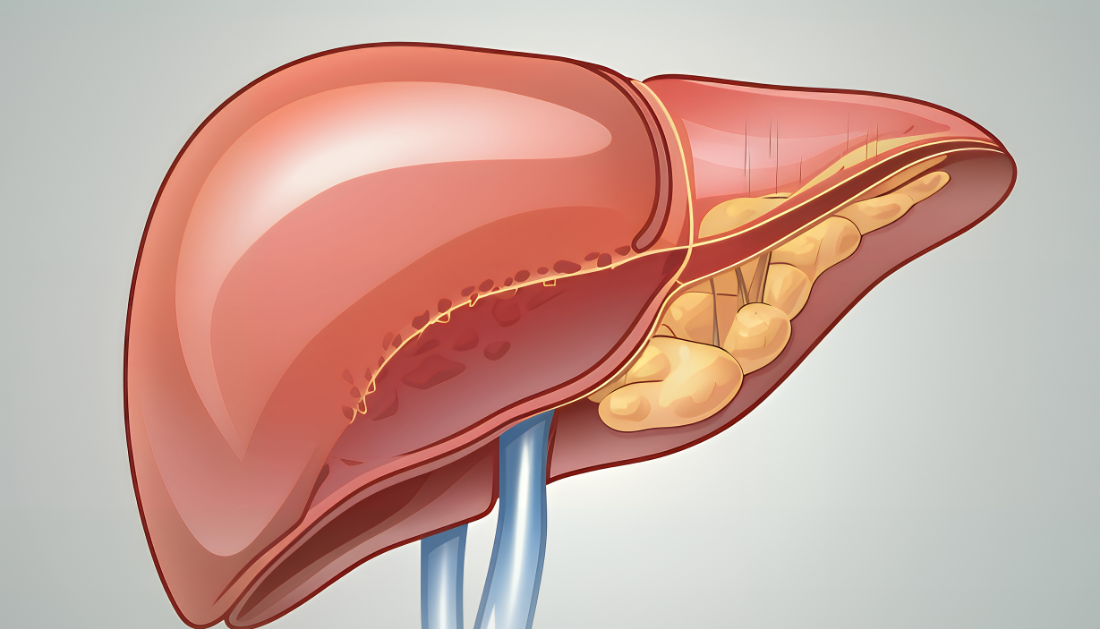

Fat accumulation in the liver is caused by high-fat diets and obesity, and it is becoming an increasingly serious global health issue. This syndrome, characterized by excessive fat deposition in the liver, increases the risk of developing a variety of metabolic problems. While much of the existing research has focused on fat metabolism within the liver, recent studies highlight the importance of the stomach in this complex process. Proglucagon-derived peptides (PGDPs), which include glucagon, GLP-1, and GLP-2, are known to be important hormones that control lipid metabolism in the liver. Previous research has revealed that both GLP-1 and GLP-2, which are derived from the same precursor, proglucagon, play an indirect role in fat buildup in the liver. However, their exact contributions to hepatic fat formation are not entirely understood.
A recent study, lead by Associate Professor Yusuke Seino of Fujita Health University and published in Nutrients on July 14, 2024, looks at how PGDPs affect fat absorption and hepatic fat storage. The team of researchers included main researchers Mr. Koki Nishida, Mr. Atsushi Suzuki, and Mr. Yoshiki Hirooka from Fujita Health University, as well as Mr. Yoshikata Hayashi from Nagoya University. Using genetically modified mice deficient in PGDPs (GCGKO mice), the study studies mice’s reaction to a high-fat diet (HFD) for seven days and gives light on a potential new technique for preventing fatty liver.
“When we subjected both GCGKO mice and control mice to an HFD for one week, the GCGKO mice exhibited a significantly lower increase in hepatic free fatty acid (FFA) and triglyceride levels, along with reduced adipose tissue weight,” highlighted Dr. Seino. These effects were attributed to a decrease in lipid absorption via the CD36 pathway in the intestinal tract, despite a reduced fat-burning capacity (β-oxidation) in the liver.
Furthermore, the study discovered reduced expression levels of genes involved in FFA oxidation in HFD-fed GCGKO mice. Pparα (peroxisome proliferator receptor alpha) and Cd36 (cluster of differentiation 36) mRNA levels were reduced in the duodenum, leading to decreased fat uptake and increased fecal cholesterol content. This shows that PGDP deficiency protects diet-induced fatty liver by decreasing intestinal fat absorption.
Notably, the researchers discovered that, despite reduced fat-burning activity in the liver, the key determinant limiting fat buildup was decreased fat absorption from the intestines. HFD-fed GCGKO mice had lower plasma triglyceride levels during the oral fat tolerance test (OFTT), confirming reduced lipid absorption.
Furthermore, the study emphasizes the complex link between nutrition, hormonal responses, and the intestinal flora. The HFD-fed GCGKO mice showed significant alterations in gut flora, with an increase in Parabacteroides and a decrease in Lactobacillus, both of which are associated with obesity resistance. These alterations support the feasibility of dietary and hormonal therapies to improve gut health and metabolic function.
Adding further, Dr. Seino notes, “If we can examine in more detail how PGDPs specifically regulate lipid absorption in the gut, we hope to clarify the relationship between diet, hormones, and intestinal bacteria sufficiently to recommend a diet that is less conducive to obesity and fatty liver disease.”
Talking about the long-term implications of their research, Dr. Seino says, “In the future, oral dual antagonists of GLP-2 and glucagon could emerge as potential therapies for obesity and fatty liver, especially given their roles in insulin sensitivity and lipid metabolism.”
In conclusion, our findings pave the path for the development of tailored medicines to tackle this rising health concern, potentially improving outcomes for millions of patients suffering from fatty liver disease globally.
For more information: Impaired Fat Absorption from Intestinal Tract in High-Fat Diet Fed Male Mice Deficient in Proglucagon-Derived Peptides, Nutrients, https://doi.org/10.3390/nu16142270
more recommended stories
 High-Fat Diets Cause Damage to Metabolic Health
High-Fat Diets Cause Damage to Metabolic HealthKey Points Takeaways High-fat and ketogenic.
 Acute Ischemic Stroke: New Evidence for Neuroprotection
Acute Ischemic Stroke: New Evidence for NeuroprotectionKey Highlights A Phase III clinical.
 Statins Rarely Cause Side Effects, Large Trials Show
Statins Rarely Cause Side Effects, Large Trials ShowKey Points at a Glance Large.
 Anxiety Reduction and Emotional Support on Social Media
Anxiety Reduction and Emotional Support on Social MediaKey Summary Anxiety commonly begins in.
 Liquid Biopsy Measures Epigenetic Instability in Cancer
Liquid Biopsy Measures Epigenetic Instability in CancerKey Takeaways Johns Hopkins researchers developed.
 Human Antibody Drug Response Prediction Gets an Upgrade
Human Antibody Drug Response Prediction Gets an UpgradeKey Takeaways A new humanized antibody.
 Pancreatic Cancer Research: Triple-Drug Therapy Success
Pancreatic Cancer Research: Triple-Drug Therapy SuccessKey Summary Spanish researchers report complete.
 Immune Cell Epigenome Links Genetics and Life Experience
Immune Cell Epigenome Links Genetics and Life ExperienceKey Takeaway Summary Immune cell responses.
 Dietary Melatonin Linked to Depression Risk: New Study
Dietary Melatonin Linked to Depression Risk: New StudyKey Summary Cross-sectional analysis of 8,320.
 Chronic Pain Linked to CGIC Brain Circuit, Study Finds
Chronic Pain Linked to CGIC Brain Circuit, Study FindsKey Takeaways University of Colorado Boulder.

Leave a Comment